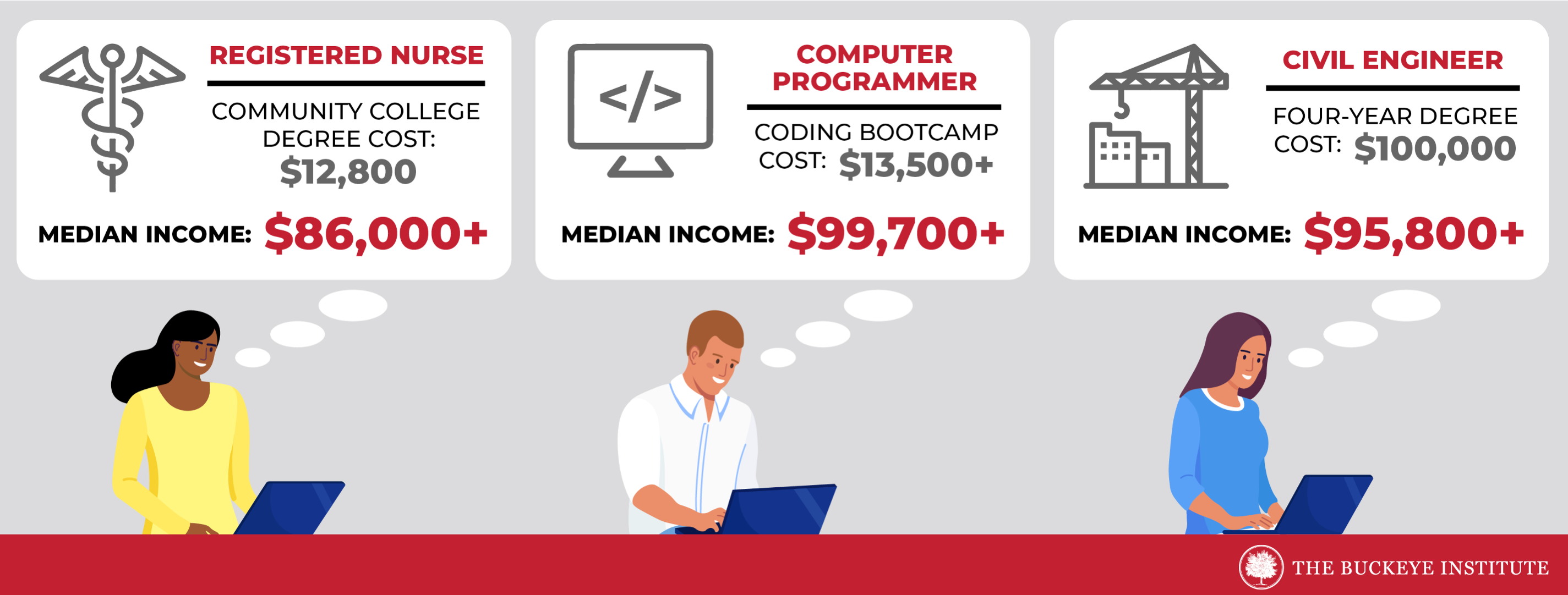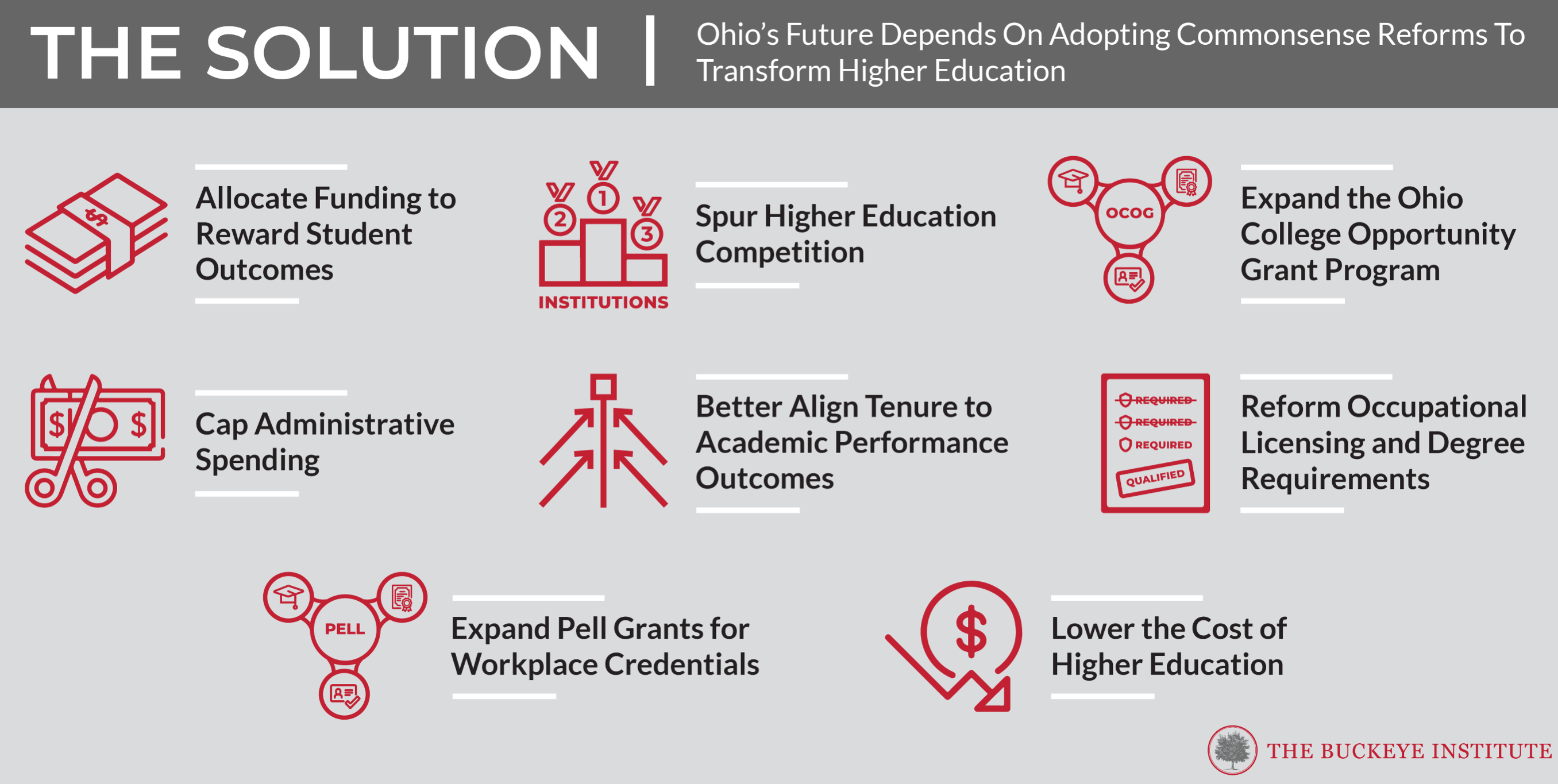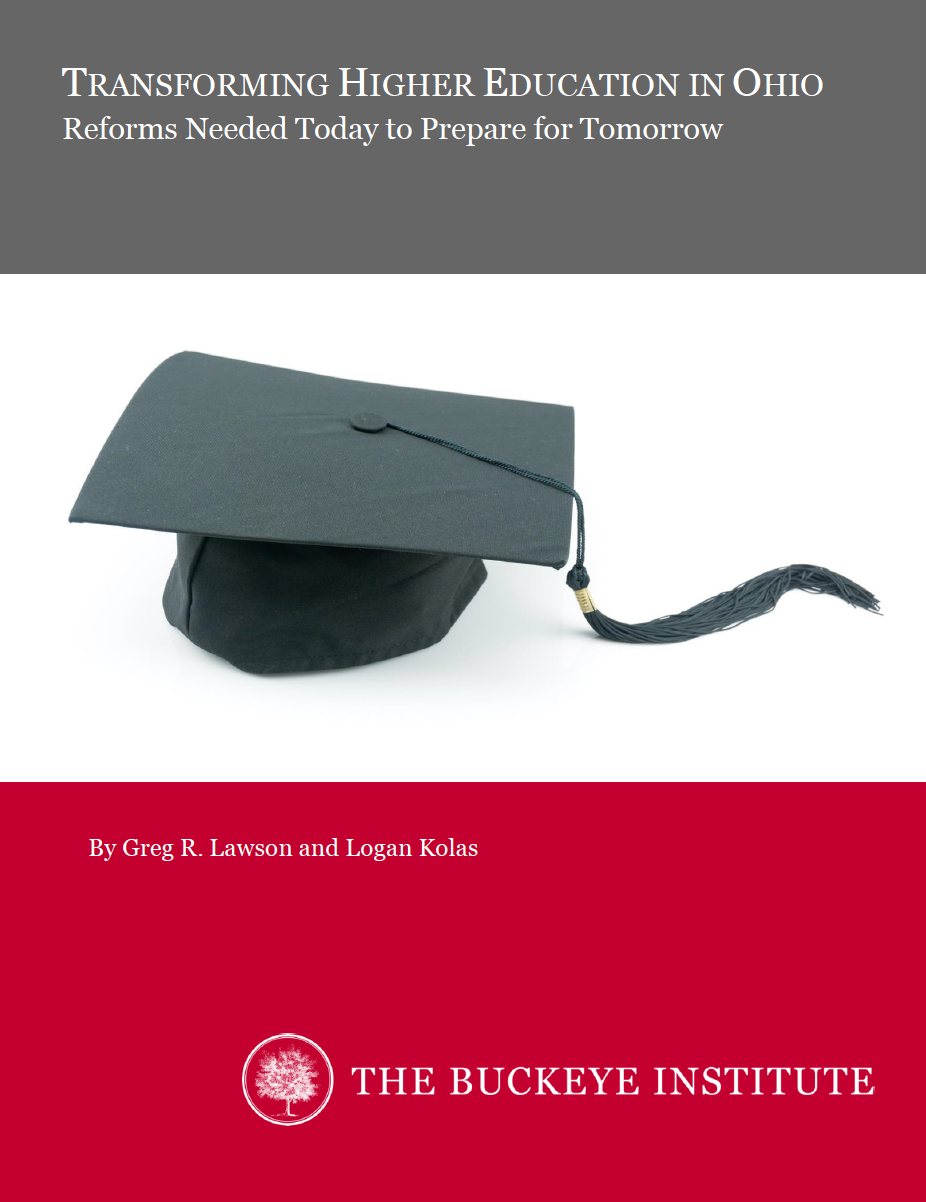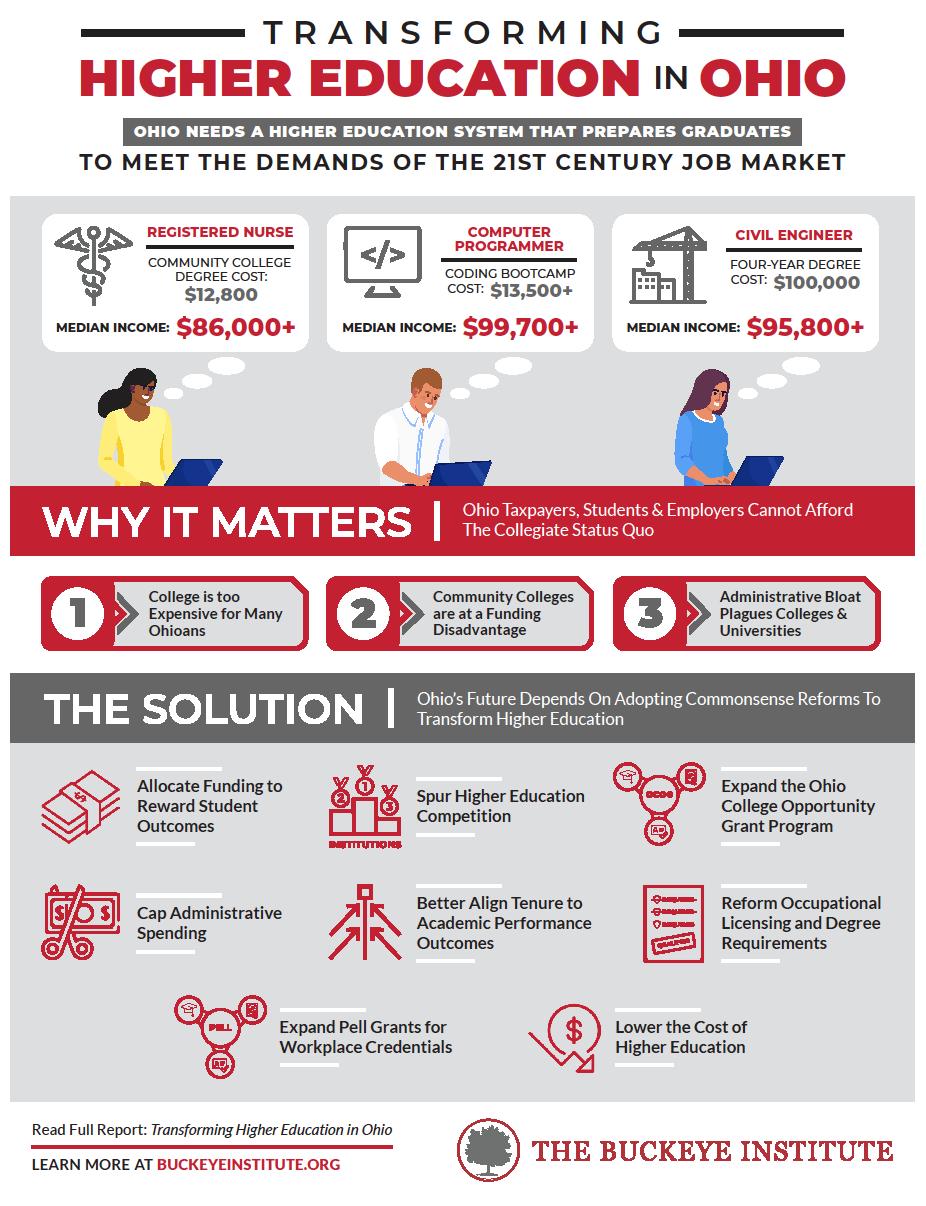In New Report, The Buckeye Institute Offers Policy Solutions to Transform Higher Education in Ohio
Jan 14, 2025Columbus, OH – In a new policy report, Transforming Higher Education in Ohio: Reforms Needed Today to Prepare for Tomorrow, The Buckeye Institute offers eight commonsense policy reforms that lawmakers should adopt to ensure that Ohio’s higher education system is preparing graduates to meet the demands of the 21st century job market.

“The reforms outlined in The Buckeye Institute’s report will foster competition in higher education, reduce academic overhead, and encourage students to pursue studies that yield stable incomes after graduation,” said Greg R. Lawson, co-author of the report and a research fellow at The Buckeye Institute. “Ohio’s future depends on change.”
By adopting The Buckeye Institute-recommended reforms, Ohio policymakers will make the state’s higher education system more flexible and responsive to students and families, and they will reward cost-effective instruction that prepares graduates to meet the demands of the 21st century job market. Policymakers at the state and federal levels should:
- Allocate Funding to Reward Student Outcomes: Allocate a greater share of public funding to reward schools for low debt-to-income ratios, high job placement, and low loan default rates.
- Spur Higher Education Competition: All higher education institutions—4-year colleges and universities, and community colleges—should compete using outcome-driven metrics for a share of public funding.
- Expand the Ohio College Opportunity Grant Program: Allow grants to cover non-tuition costs at community colleges and short-term credentialing classes to help non-traditional and lower-income students earn an associate’s degree or job credential.
- Cap Administrative Spending: Limit non-instructional and administrative expenses at public universities and colleges and reduce the state share of instruction for any school that exceeds the cap.
- Reevaluate Tenure at State Schools: Reform policies to better align tenure to academic performance.
- Reform Occupational Licensing and Degree Requirements: Eliminate unneeded bachelor’s degree requirements, especially for government jobs.
- Expand Pell Grants for Workplace Credentials: Expand eligibility to students seeking short-term certificates, credentials at for-profit schools, certifying entities, community colleges, and industry associations.
- Lower the Cost of Higher Education: Require colleges and universities to guarantee student loans and share in the risk of the student loan investment.

The Buckeye Institute’s recommended funding allocation for community colleges and four-year universities are as follows:
.
Greg R. Lawson, a research fellow at The Buckeye Institute, and Logan Kolas, director of technology policy at the American Consumer Institute and a former economic policy analyst at The Buckeye Institute, co-authored Transforming Higher Education in Ohio.
# # #


